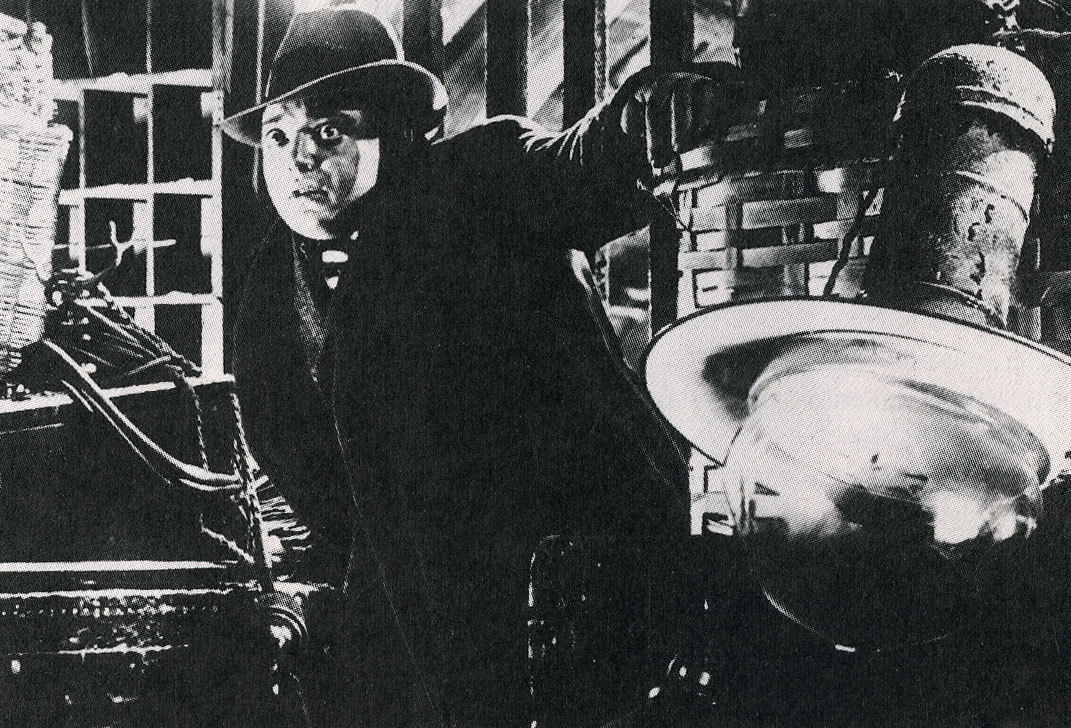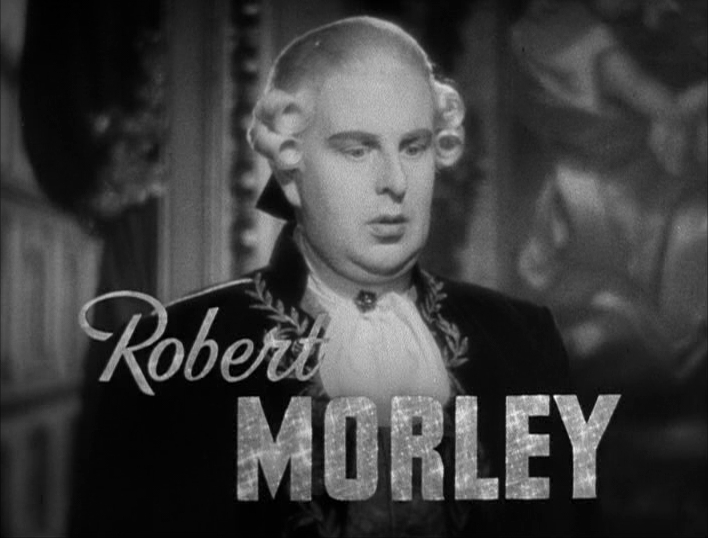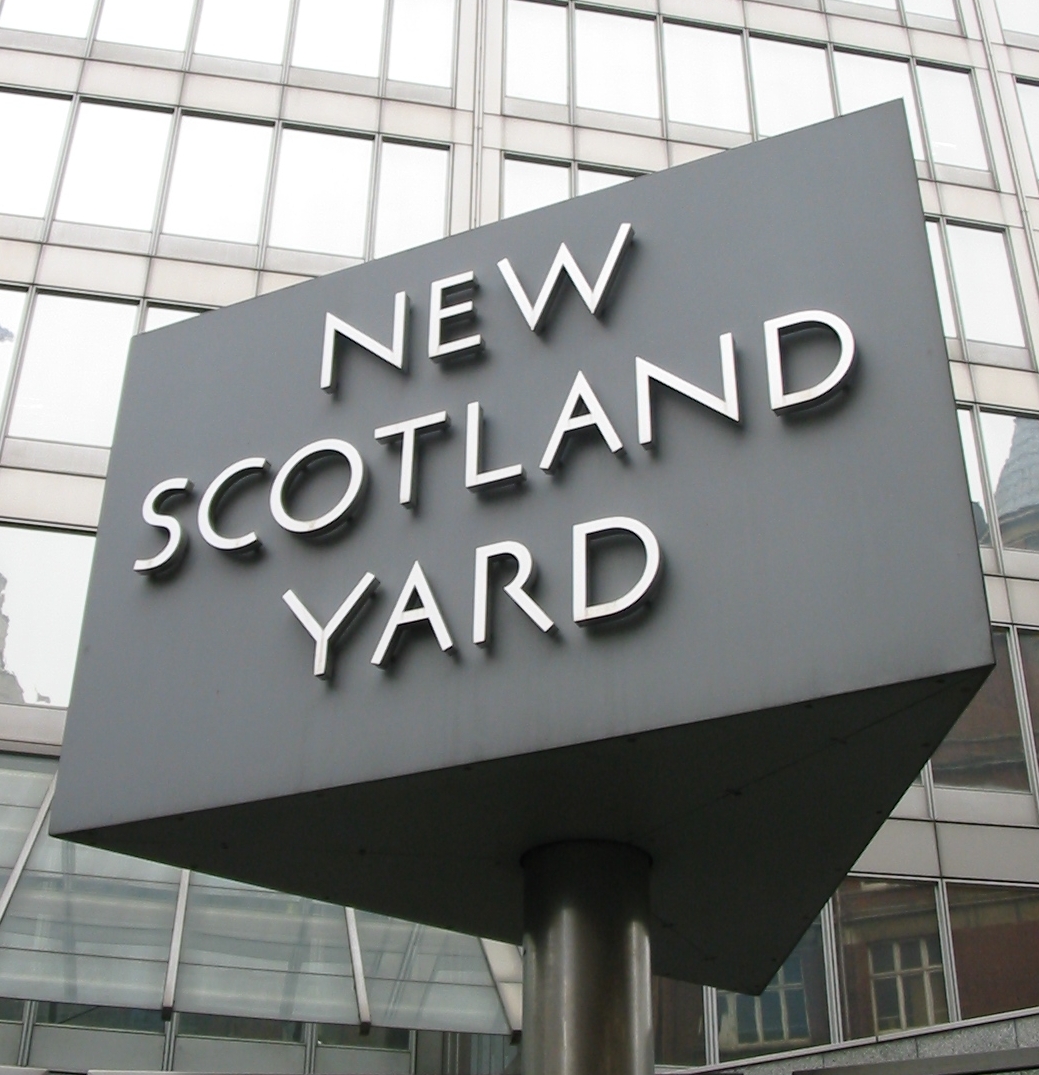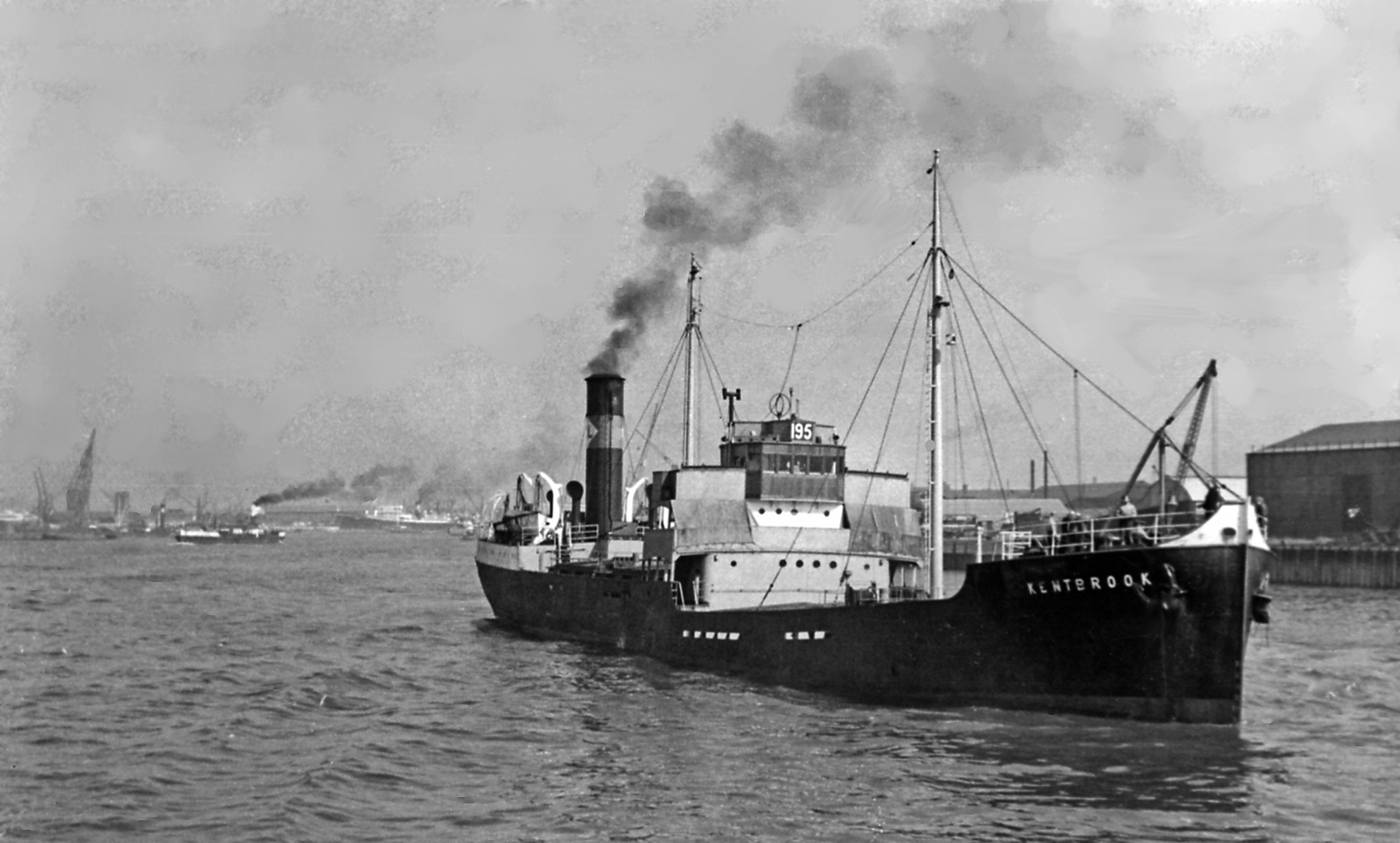|
Beat The Devil (film)
''Beat the Devil'' is a 1953 adventure comedy film directed by John Huston and starring Humphrey Bogart, Jennifer Jones and Gina Lollobrigida in her American debut. Huston and Truman Capote wrote the screenplay, loosely based upon the 1951 novel of the same name by British journalist Claud Cockburn writing under the pseudonym James Helvick. Huston intended the film as a sort of loose parody of his 1941 film '' The Maltese Falcon'', which also starred Bogart. Capote said, "John ustonand I decided to kid the story, to treat it as a parody. Instead of another ''Maltese Falcon'', we turned it into a... poofon this type of film." The script, written on a day-to-day basis as the film was shot, concerns the adventures of a group of swindlers and their associates who try to claim land rich in uranium deposits in Kenya as they wait in a small Italian port to travel aboard a tramp steamer to Mombasa. Plot Billy Dannreuther is a formerly wealthy American who has fallen on hard ti ... [...More Info...] [...Related Items...] OR: [Wikipedia] [Google] [Baidu] |
John Huston
John Marcellus Huston ( ; August 5, 1906 – August 28, 1987) was an American film director, screenwriter and actor. He wrote the screenplays for most of the 37 feature films he directed, many of which are today considered classics. He received numerous accolades including two Academy Awards and three Golden Globe Awards. He also received a star on the Hollywood Walk of Fame in 1960 and the BAFTA Fellowship in 1980. Son of actor Walter Huston, he studied and worked as a fine art painter in Paris. He then moved to Mexico and began writing, first plays and short stories, and later working in Los Angeles as a Classical Hollywood cinema, Hollywood screenwriter, and was nominated for several Academy Awards writing for films directed by William Dieterle and Howard Hawks, among others. His directorial debut came with ''The Maltese Falcon (1941 film), The Maltese Falcon'' (1941), which despite its small budget became a commercial and critical hit; he continued to be a successful, i ... [...More Info...] [...Related Items...] OR: [Wikipedia] [Google] [Baidu] |
The Maltese Falcon (1941 Film)
''The Maltese Falcon'' is a 1941 American film noir written and directed by John Huston in his directorial debut. Based on The Maltese Falcon (novel), the 1930 novel by Dashiell Hammett, it is a remake of The Maltese Falcon (1931 film), the 1931 film. Starring Humphrey Bogart as private investigator Sam Spade, Mary Astor as his ''femme fatale'' client, and Peter Lorre and Sydney Greenstreet as villains, the film follows a life-and-death quest for a jewel-encrusted falcon statuette in San Francisco. The film premiered in New York City on October 3, 1941, and was an immediate success, eventually becoming one of the first 25 films selected by the Library of Congress to be included in the National Film Registry as "culturally, historically, or aesthetically significant" in 1989. Plot In San Francisco, private investigators Sam Spade and Miles Archer meet prospective client Ruth Wonderly. She claims to be looking for her missing sister, who ran off from their home in New York an ... [...More Info...] [...Related Items...] OR: [Wikipedia] [Google] [Baidu] |
Ivor Barnard
Ivor Barnard (13 June 1887 – 30 June 1953) was an English stage, radio and film actor. He was an original member of the Birmingham Repertory Theatre, where he was a notable Shylock and Caliban. He was the original Water Rat in the first London production of A. A. Milne's "Toad of Toad Hall". In 1929 he appeared on stage as Blanquet, in "Bird in Hand" at the Morosco Theatre in New York, after a successful run in London's West End (Laurence Olivier was the juvenile). The part had been specially written for him by John Drinkwater. He appeared in more than 80 films between 1921 and 1953. He appeared in the Alfred Hitchcock film '' The 39 Steps'' in 1935. In 1943, he played the stationmaster in the Ealing war film ''Undercover''. He also appeared as Wemmick in David Lean's ''Great Expectations'' (1946), and as the Chairman of the Workhouse, in Lean's film ''Oliver Twist'' (1948). One of his last film appearances was as the murderer Major Jack Ross in John Huston's '' Beat the ... [...More Info...] [...Related Items...] OR: [Wikipedia] [Google] [Baidu] |
Edward Underdown
Charles Edward Underdown (3 December 190815 December 1989) was an English theatre, cinema and television actor. Early Life Underdown was the son of Harry Charles Baillie Underdown and Rachel Elizabeth Orr. Born in London, he was educated at Eton College. There his looks resulted in him being nominated 'Pop Bitch' – the prettiest boy available to the senior students of Pop, the Eton Society. Notable work Underdown's early theatre credits include: Noël Coward's '' Words and Music'' and '' Tonight at 8.30''; Cole Porter's '' Nymph Errant''; Moss Hart & Irving Berlin's '' Stop Press''; and ''Streamline''.University of Bristol Theatre Collection Database (2011). at http://www.bristol.ac.uk/theatrecollection, accessed 26 September 2011. His film credits include: '' They Were Not Divided'', '' Beat the Devil'', '' Wings of the Morning'', '' The Rainbow Jacket'', '' The Woman's Angle'', '' Her Panelled Door'', '' The Camp on Blood Island'', '' Dr. Terror's House of Horrors'', '' ... [...More Info...] [...Related Items...] OR: [Wikipedia] [Google] [Baidu] |
Peter Lorre
Peter Lorre (; born László Löwenstein, ; June 26, 1904 – March 23, 1964) was a Hungarian and American actor, active first in Europe and later in the United States. Known for his timidly devious characters, his appearance, and accented voice, he was frequently typecast as a sinister foreigner. He has been caricatured throughout his life and his cultural legacy remains in media today. He began his stage career in Vienna, in the Austro-Hungarian Empire, before moving to Germany, where he worked first on the stage, then in film, in Berlin during the late 1920s and early 1930s. Lorre, who was Jewish, left Germany after Adolf Hitler and the Nazi Party came to power. Lorre caused an international sensation in the Weimar Republic–era film ''M (1931 film), M'' (1931) where he portrayed a serial killer who preys on little girls. His second English-language film was Alfred Hitchcock's ''The Man Who Knew Too Much (1934 film), The Man Who Knew Too Much'' (1934), made in the United K ... [...More Info...] [...Related Items...] OR: [Wikipedia] [Google] [Baidu] |
Robert Morley
Robert Adolph Wilton Morley (26 May 1908 – 3 June 1992) was an English actor who enjoyed a lengthy career in both Britain and the United States. He was frequently cast as a pompous English gentleman representing the Establishment, often in supporting roles. In 1939 he received an Academy Awards, Academy Award nomination for Academy Award for Best Supporting Actor, Best Supporting Actor for his portrayal of King Louis XVI in ''Marie Antoinette (1938 film), Marie Antoinette''. In ''Movie Encyclopedia'', film critic Leonard Maltin describes Morley as "recognisable by his ungainly bulk, bushy eyebrows, thick lips and double chin, ... particularly effective when cast as a pompous windbag." Ephraim Katz in his ''International Film Encyclopaedia'' describes Morley as "a rotund, triple-chinned, delightful character player of the British and American stage and screen." In his autobiography, ''Responsible Gentleman'', Morley said his stage career started with managements valuing his a ... [...More Info...] [...Related Items...] OR: [Wikipedia] [Google] [Baidu] |
Scotland Yard
Scotland Yard (officially New Scotland Yard) is the headquarters of the Metropolitan Police, the territorial police force responsible for policing Greater London's London boroughs, 32 boroughs. Its name derives from the location of the original Metropolitan Police headquarters at 4 Whitehall Place, which had its main public entrance on the Westminster street called Great Scotland Yard. The Scotland Yard entrance became the public entrance, and over time "Scotland Yard" came to be used not only as the common name of the headquarters building, but also as a metonym for the Metropolitan Police Service (MPS) itself and police officers, especially detectives, who serve in it. ''The New York Times'' wrote in 1964 that, just as Wall Street gave its name to New York's financial district, Scotland Yard became the name for police activity in London. The force moved from Great Scotland Yard in 1890, to a newly completed building on the Victoria Embankment, and the name "New Scotland Yard" ... [...More Info...] [...Related Items...] OR: [Wikipedia] [Google] [Baidu] |
Rita Hayworth
Rita Hayworth (born Margarita Carmen Cansino; October 17, 1918May 14, 1987) was an American actress, dancer, and Pin-up model, pin-up girl. She achieved fame in the 1940s as one of the top stars of the Classical Hollywood cinema, Golden Age of Hollywood, and appeared in 61 films in total over 37 years. The press coined the term "The Love Goddess" to describe Hayworth, after she had become the most glamorous screen idol of the 1940s. She was the top Pin-up model, pin-up girl for GIs during World War II. Hayworth is widely known for her performance in the 1946 film noir ''Gilda (film), Gilda'', opposite Glenn Ford, in which she played the ''femme fatale'' in her first major dramatic role. She is also known for her performances in ''Only Angels Have Wings'' (1939), ''The Strawberry Blonde'' (1941), ''Blood and Sand (1941 film), Blood and Sand'' (1941), ''The Lady from Shanghai'' (1947), ''Pal Joey (film), Pal Joey'' (1957), and ''Separate Tables (film), Separate Tables'' (1958). Fr ... [...More Info...] [...Related Items...] OR: [Wikipedia] [Google] [Baidu] |
Beat The Devil (1953) By John Huston
Beat, beats, or beating may refer to: Common uses * Assault, inflicting physical harm or unwanted physical contact * Battery (crime), a criminal offense involving unlawful physical contact * Battery (tort), a civil wrong in common law of intentional harmful or offensive contact * Corporal punishment, punishment intended to cause physical pain * Patrol, or beat, a group of personnel assigned to monitor a specific area ** Beat (police), the territory that a police officer patrols ** Gay beat, an area frequented by gay men * Strike (attack), repeatedly and violently striking a person or object * Victory, success achieved in personal combat, military operations or in any competition *Beating (hunt), driving game out of areas of cover during a hunt Arts, entertainment and media Fictional characters * Beat, an anthro fox in the animated series " Motto! Majime ni Fumajime Kaiketsu Zorori" * Beat, in the video game ''Eternal Sonata'' * Beat, in the video game ''Jet Set Radio'' ... [...More Info...] [...Related Items...] OR: [Wikipedia] [Google] [Baidu] |
British East Africa
East Africa Protectorate (also known as British East Africa) was a British protectorate in the African Great Lakes, occupying roughly the same area as present-day Kenya, from the Indian Ocean inland to the border with Uganda in the west. Controlled by the United Kingdom in the late 19th century, it grew out of British commercial interests in the area in the 1880s and remained a protectorate until 1920 when it became the Colony of Kenya, save for an independent coastal strip that became the Kenya Protectorate.Kenya Protectorate Order in Council 1920 ( SR&O 1920/2343), S.R.O. & S.I. Rev. VIII, 258, State Pp., Vol. 87 p. 968 Administration European Christian missionaries began settling in the area from Mombasa to Mount Kilimanjaro in the 1840s, nominally under the protection of the Sultanate of Zanzibar. In 1886, the British government encouraged William Mackinnon, who already had an agreement with the Sultan and whose shipping company traded extensively in the African Grea ... [...More Info...] [...Related Items...] OR: [Wikipedia] [Google] [Baidu] |
Mombasa
Mombasa ( ; ) is a coastal city in southeastern Kenya along the Indian Ocean. It was the first capital of British East Africa, before Nairobi was elevated to capital status in 1907. It now serves as the capital of Mombasa County. The town is known as "the white and blue city" in Kenya. It is the country's oldest ( 900 A.D.) and second-largest List of cities in Kenya, cityThe World Factbook . Cia.gov. Retrieved on 17 August 2013. after Nairobi, with a population of about 1,208,333 people according to the 2019 census. Mombasa's location on the Indian Ocean made it a historical trading centre, and it has been controlled by many countries because of its strategic location. Kenyan school history books place the founding of Mombasa as 900 AD. It ... [...More Info...] [...Related Items...] OR: [Wikipedia] [Google] [Baidu] |
Tramp Steamer
A boat or ship engaged in the tramp trade is one which does not have a fixed schedule, itinerary nor published ports of call, and trades on the spot market as opposed to freight liners. A steamship engaged in the tramp trade is sometimes called a tramp steamer; similar terms, such as tramp freighter and tramper, are also used. Chartering is done chiefly on London, New York, and Singapore shipbroking exchanges. The Baltic Exchange serves as a type of stock market index for the trade. The term tramper is derived from the British meaning of "tramp", as being an itinerant beggar or vagrant. In this context, it was first documented in the 1880s, along with "ocean tramp" (at the time many sailing vessels engaged in irregular trade as well). History The tramp trade first took off in Britain around the mid-19th century. The dependability and timeliness of steam ships was found to be more cost-effective than sail. Coal was needed for ships' boilers, and the demand created a business ... [...More Info...] [...Related Items...] OR: [Wikipedia] [Google] [Baidu] |








